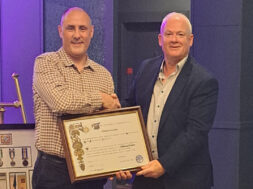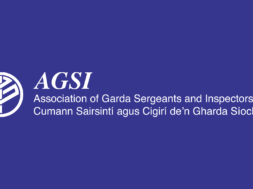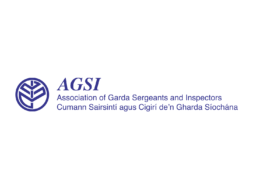Appointment of Senior Members of An Garda Síochána – First Stage Public Sector Management Bill 2014
Public Sector Management (Appointment of Senior Members of the Garda Síochána) Bill 2014: First Stage
Speech by Frances Fitzgerald TD, Minister for Justice and Equality
17 June 2014
I welcome the opportunity to respond to the Public Sector Management (Appointment of Senior Members of the Garda Síochána) Bill 2014 which has been introduced by Deputy Ross.
Context
The House will not need to be reminded by me of the many issues which have arisen in recent months relating to the Garda Síochána and the administration of justice in Ireland.
Last week we saw publication of the Cooke Report.
Last month we saw publication of the Guerin Report.
We know of the many various allegations by Garda whistleblowers.
We know of the public disquiet regarding the penalty points system.
Regrettably, as a result, we have witnessed an erosion of public confidence in the work of the Gardaí.
It is essential that members of the public have full confidence in how the Gardaí carry out their functions.
Examination
The Government has therefore; and rightly taken action to ensure that these issues are dealt with in an independent and impartial manner that commands public confidence:
· The penalty points allegations have been referred to GSOC for independent investigation;
· The Garda Inspectorate has prepared a report on reform of the Fixed Charge Penalty System; and it recommendations are now being implemented, including today’s announcement that the Gardaí have commenced implementation of the Inspectorate’s short-term recommendations;
· A Commission of Investigation, headed by Mr. Justice Fennelly, has commenced work in examining the issues relating to the recording of telephone calls at Garda stations and associated matters;
· The Government commissioned a report by Seán Guerin SC into the way in which Garda whistleblower allegations regarding crime investigations were handled;
· The Government commissioned a further (now-published) report by Mr. Justice Cooke into the claims of unlawful surveillance of GSOC.
So one by one, in each case, the Government have put in place a mechanism for an authoritative examination of claims and allegations, so that the facts can be discovered, the truth established, and any necessary action taken.
Reform
But the Government also recognise that what is more critical is that the issues and failings identified are resolved.
We need not only to address specific difficulties that arise, but also to identify the kind of longer-term reforms that will ensure continued public confidence in the Garda Síochána and in the vital policing and security service they provide.
The Government has therefore initiated a comprehensive programme of reform to address the wider systemic failings in the areas of policing and the administration of justice, including those which have emerged from the Guerin Report.
The spectrum of issues that must be addressed is complex and deep-rooted, ranging from high-level issues such as oversight, change management and the role of whistle-blowers; to local administration and internal communication; to matters of basic policing, performance and human resources.
A new Cabinet Committee on Justice Reform has been established, headed by the Taoiseach, and including the Tánaiste, the Minister for Communications, Energy and Natural Resources, myself in my capacity as Minister for Justice and Equality, and the Attorney General. This Committee is overseeing this comprehensive programme of policing reform.
As part of this programme of reform:
· An Independent Garda Authority is to be established, by the end of this yea.
· Future appointments to the position of Garda Commissioner will be by way of open competition.
· The Garda Inspectorate is to carry out a comprehensive inquiry into serious crime investigation, and management & operational issues arising from the findings of the report by Mr. Guerin.
· The Government has agreed to establish a further Commission of Investigation as recommended in the Guerin Report.
On foot of last week’s publication of the Cooke Report, the Government will now proceed to consider the terms of reference and formally establish the Commission.
· An Independent Expert Review of the performance, management and administration of the Department of Justice has been established, chaired by Mr. Kevin Toland. Its report is expected by July.
· Amendments to the Protected Disclosures Bill will be enacted to enable a Garda whistleblower to report their concerns to GSOC.
· New legislation will be introduced shortly to strengthen the remit and powers of the Ombudsman Commission. Some of the measures being considered here include:
o bringing the Garda Commissioner within the scope of GSOC;
o the capacity of GSOC to commence reviews of Garda practice on it’s initiative;
o the police powers GSOC can exercise in conducting investigations;
o clarifying the basis on which GSOC can initiate a Public Interest Investigation;
o the preparation and implementation of protocols between Gardai & GSOC.
Garda Authority
In addition to these reforms, a further key development will be the establishment, for the first time, of an Independent Garda Authority. This will undoubtedly be the most significant change in the oversight of the Garda Síochána since its foundation.
I acknowledge that change was introduced in the Garda Síochána Act 2005. But deeper reform is now needed, and the Garda authority will be central to this.
I set out the background to the Government’s programme of Garda reform because the Bill being put forward by Deputy Ross seeks to address one single aspect of reform, namely the way in which appointments are made to the top ranks in the Garda Síochána.
I think it is important to appreciate how individual reforms, such as the way in which the most senior members of the Force are appointed, must be designed to fit properly in the new policing and oversight architecture, and not brought forward piecemeal in ways which do not complement each other.
That is the general difficulty I have with this Bill. It puts forward a proposal on the appointment of senior members of the Garda Síochána, but does not take into account how this might fit in to the wider reforms under way.
Take the proposed independent Garda authority as a key example of those reforms. That is a proposal which, as far as I can tell, enjoys a broad measure of support right across this House. I intend to bring forward the necessary legislative proposals this year, so that the authority can be in place by the end of the year. That is a very challenging timetable, but I am making it a top priority.
Now while the details of its functions will need to be fully worked out as part of that legislative process, and I look forward to discussing the details in this House, one of its more obvious potential roles will be to have an involvement on the process of appointment of the most senior members of the Garda Síochána.
In saying that, I emphasise that I am not anticipating any particular decision of Government, still less of this House, and careful consideration will need to be given to the nature of the involvement of the authority in senior Garda appointments.
But if you look at broadly comparable bodies, such as the police authorities in the North or in Scotland, they have an important role in senior police appointments. I welcome the study trip to Scotland and Northern Ireland, undertaken in recent days by members of the Oireachtas Joint Committee on Justice, to examine their model of police authorities and their role in senior police appointments. I would also commend the Joint Committee on its extensive series of hearings on the matters of a new Garda authority and the reform of GSOC.
The issue of the functions of a new Garda authority; and the question of its role in appointing senior Garda members will also be the subject of discussion at the consultation event which I am convening this Friday in Farmleigh where key stakeholders will discuss the new Garda authority.
Yet this Bill takes no account of the forthcoming Garda authority or the extensive consultations underway involving a wide range of voices. Instead this bill proposes a prescriptive approach to a singular area of reform, isolated from consideration of other reforms.
The bill proposes a free-standing system of appointment to the senior Garda ranks by a new Public Appointments Board, following an open competition conducted by the Top Level Appointments Committee and involving the approval of this House in the case of the Garda Commissioner or a recommendation by an Oireachtas Committee in the case of other senior ranks.
I find it very difficult to see how this House could be asked to establish such a system on the eve of the introduction of proposals for an independent Garda authority. This Bill is effectively saying that the new independent Garda authority will have no role in the most senior Garda appointments.
Leaving aside the detail of this Bill, it is simply premature to ask this House to take a decision now which would anticipate its decision on the role of the authority; and to take this decision in advance of considering the outcome of the substantial process of consultations now underway, including the valuable and important work of the Joint Committee; and the consultation event taking place this Friday.
Proposal for Dáil approval
If we do however look at the detail of this Bill, there is also the question as to whether a key element of it, namely a requirement for the approval of this House for the appointment of a person to the post of Garda Commissioner, is in any event the right approach.
At the outset of my remarks I recalled the controversies which had arisen in relation to the Garda Síochána, and the potential damage which the resulting political controversies could inflict on what is a vital public service. I explained how the Government had taken decisive steps to resolve these controversies in a way which was evidently independent and impartial, and which would command public confidence.
Yet this Bill, in requiring the approval of the House for the appointment of a Garda Commissioner, threatens to put politics right back into policing.
By all means let us debate this at the proper time, when the legislative proposals for the Garda authority are before the House, but we surely cannot introduce such a measure, with such potentially far-reaching consequences, in this Bill.
Proposal for extension of remit of proposed Public Appointments Board
I have to say that I also find it odd that the Bill, although it is designed to deal with senior Garda appointments, provides for the extension of the remit of the proposed Public Appointments Board to other sectors within the Public Service. We should recall that there is already a structure – set out in the Public Service Management (Recruitment and Appointments) Act 2004 to 2013 – for appointments to large parts of the Public Service. It is also the case that the 2004 Act, which provides for the Public Appointments Service and the Commission for Public Service Appointments, can be extended to other public sector bodies by Ministerial order. I would have thought that proposals for such a major change to public service appointments generally should be debated fully in their own right, and not tagged on as a single section in a Bill dealing with Garda appointments.
Conclusion
This Bill raises an important issue – the process of making appointments to the most senior positions in the Garda Síochána. I welcome the debate, but I cannot welcome or support a proposal which is premature and being put forward in isolation to other vital reforms.
That is not because I wish to avoid reform. Quite the contrary. The point is that hugely significant reforms are under way. The Government have already said that there will be an open competition for the next appointment to the post of Garda Commissioner. The Government have announced plans for a new independent Garda authority, to be in place by the end of this year. By any measure these are some of the most important reforms ever proposed in relation to the Garda Síochána.
I look forward to the debate on these proposals, and I look forward to the contribution of Deputies, including Deputy Ross, to that debate. But the discussion on the process of Garda appointments needs to be part of that wider debate. We need the process of Garda reform to be comprehensive and cohesive. We need to consider all aspects of that reform. And we need to make sure, as far as we possibly can, that we get it right. This Bill does not achieve this, and I therefore regret that I cannot support it.
ENDS









